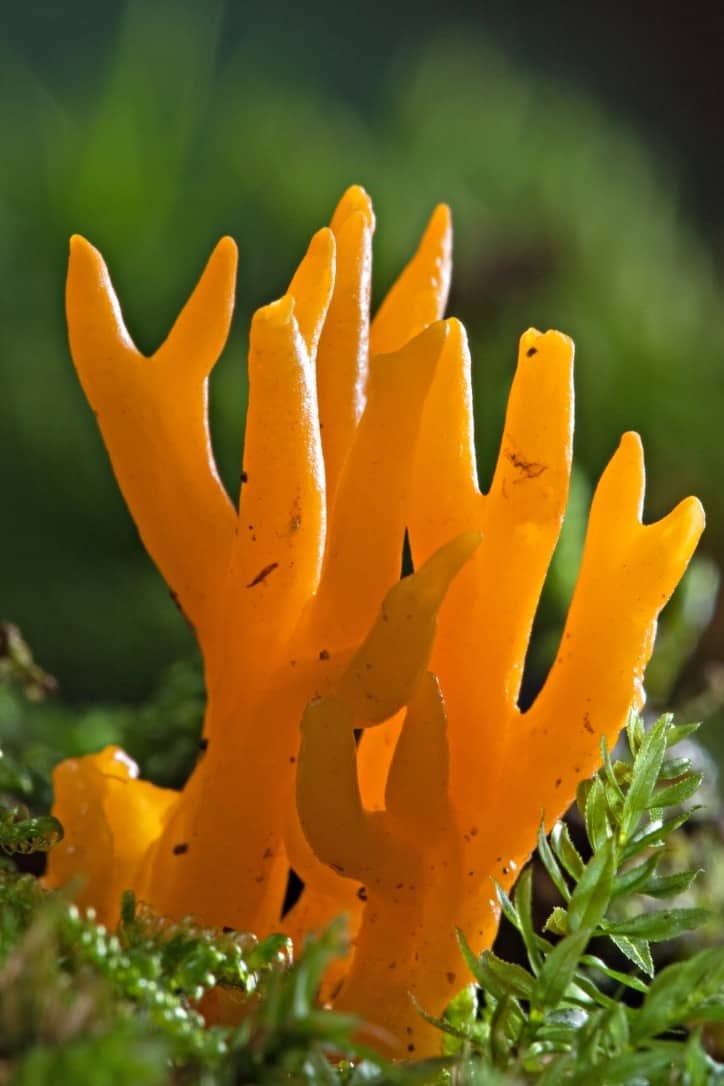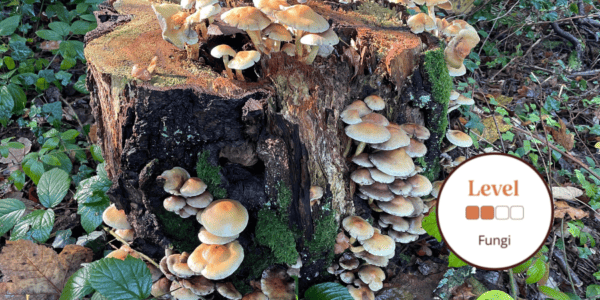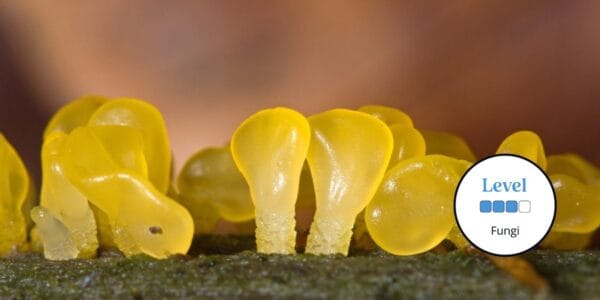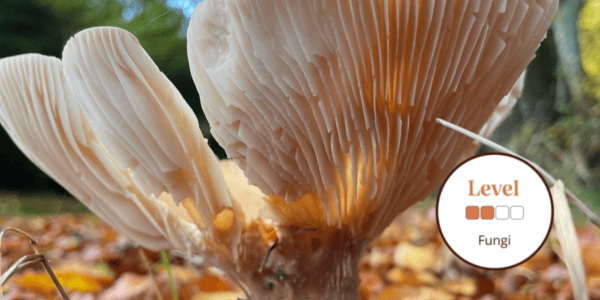This course on identification of macrofungi is for those who are interested in fungi, have some basic experience of trying to identify them (e.g. using a pictorial field guide or participating in group recording forays) and would like to take their identification skills further.
This course will equip you with the skills necessary to set out on your fungi identification journey with confidence, be able to classify fungi into the correct major groups, and be able to identify many of the more commonly occurring fungi to at least genus level. You will explore field techniques, fungi structure and function, their ecology and distribution, as well as gain an understanding of the importance of these species for conservation and recording.
You will have the opportunity to get out into the field and visit the rich range of habitats surrounding the Preston Montford Centre where your course will take place, identifying specimens within an ecological context to consolidate your understanding.
Tutor: Jeanette Maddy
Jeanette Maddy is the Chair of North West Fungus Group, an active recorder and field surveyor and an Associate Tutor with Manchester Metropolitan University for the MSC Biological Recording Course.
Example Timetable
Example Timetable
This timetable is subject to change but should give an outline of what to expect.
If you have booked accommodation with the Centre your bedroom will be ready from 3.00 pm onward on the day of arrival and we ask that you vacate by 9.30 am on the morning of departure.
If numbers are sufficient a station pick up will be arranged at 5.30 pm from Shrewsbury Station.
Please arrive in time for the evening meal at 6.30 pm
The course starts after dinner with a classroom session 7.30 pm - 9.00 pm
The course ends at 4.00 pm on the final day.
Time will be made available for eating packed lunches during the day.
Friday:
Time to settle in; lab introduction and introductions to course peers
Saturday:
Morning
9:15 Lab: How to collect fungi and take field-notes
9:45 Field Trip - take packed lunch
Afternoon
14:00 Lab: Describing and recording field collections; making spore prints; identifying, sorting out the genera, using keys and macroscopic characters
16:00 Tea/Coffee
16:15 Lab: Using microscopes. Preparing material for microscopy, observing spores
Evening
18:30 Evening meal
19:30 Lab: Talk on fungal diversity
20:15 Lab: Continue Identification (optional)
Sunday:
Morning
9:15 Field Trip - take packed lunch
Afternoon
13:30 Lab: Identification, microscope work
16:00 Tea/Coffee
16:15 Lab: Continue identification
Evening
18:30 Evening meal
19:30 Lab: Each member of the group to describe how they have identified one of the fungal species they collected on either of the field trips
Monday:
For credit students there will be a short test. Otherwise, you will continue lab work, practice microscopy and/or foray around Preston Montford. Rounding off the course will be a short talk on fungal recording. Course finishes at around 4 pm.
What's Included
What’s included?
- Classroom learning covering the theory of the subject
- Field excursions to apply new knowledge
- Expert tuition for which we are renowned
- Clear objectives and progression
- All meals provided
You can rest assured that the absolute best content from an expert in environmental education will be provided. In choosing this course, you will be joining thousands of people who learn with us each year.
For course bookings including full board accommodation, please note bathroom facilities maybe be shared
Before You Attend
There will be a member of staff with first aid training and access to a first aid kit on site. If you have special medical or access requirements, please let us know as soon as possible so we can make any necessary adjustments.
What to bring
- Simple collecting equipment such as a small pocket knife, paper bags and pots (empty film containers, margarine tubs etc.), basket, compartmented box.
- Camera/phone for photography.
- Ruler and looseleaf A4 pad, field notebook.
- Hand lens x10.
- Packed lunch containers e.g. vacuum flask, sandwich box, water bottle.
- Warm clothing, waterproofs and stout footwear for the forays.
- a laptop or other electronic device for accessing online keys
- your own microscope.
Recommended field guides and reading
- Please bring your own field guides with you if you have them.
- Collins Complete British Mushrooms and Toadstools: The essential photograph guide to Britain's fungi (Collins Complete Guides) by Paul Sterry and Barry Hughes.
- Paul Nichol’s book, “An Initial Guide to the Identification of Mushrooms & Toadstools”.
- Online reference (e-)book, David Moore’s "21st Century Guidebook to Fungi”
Older but useful field guides:
- Buczacki, S. (1992) Mushrooms and Toadstools of Britain and Europe. Collins
- Grunert, H. (1991) Field Guide to Mushrooms of Britain and Europe. Crowood Press
- Marcel, B. (1987) The Mushrooms and Toadstools of Britain and Northern Europe. Hodder and Stoughton
- Phillips, R. (1981) Mushrooms and other Fungi of Britain and Europe. Pan
General interest background reading:
Merlin Sheldrake’s "Entangled Life”
Peter Marren’s "Mushrooms: The natural and human world of British fungi" (British Wildlife Collection)
Paul Stamets’ “Mycelium Running”
Sorry this course booking is closed




